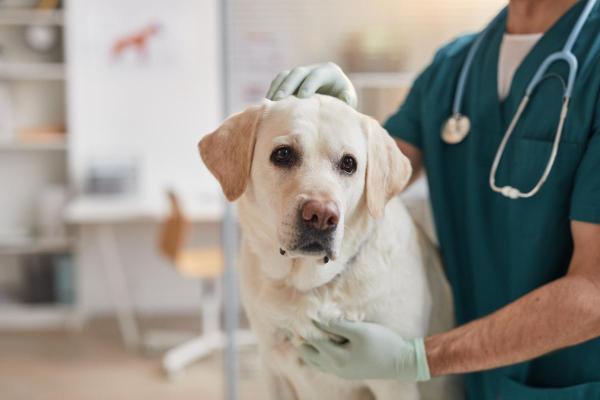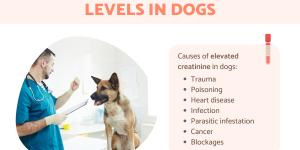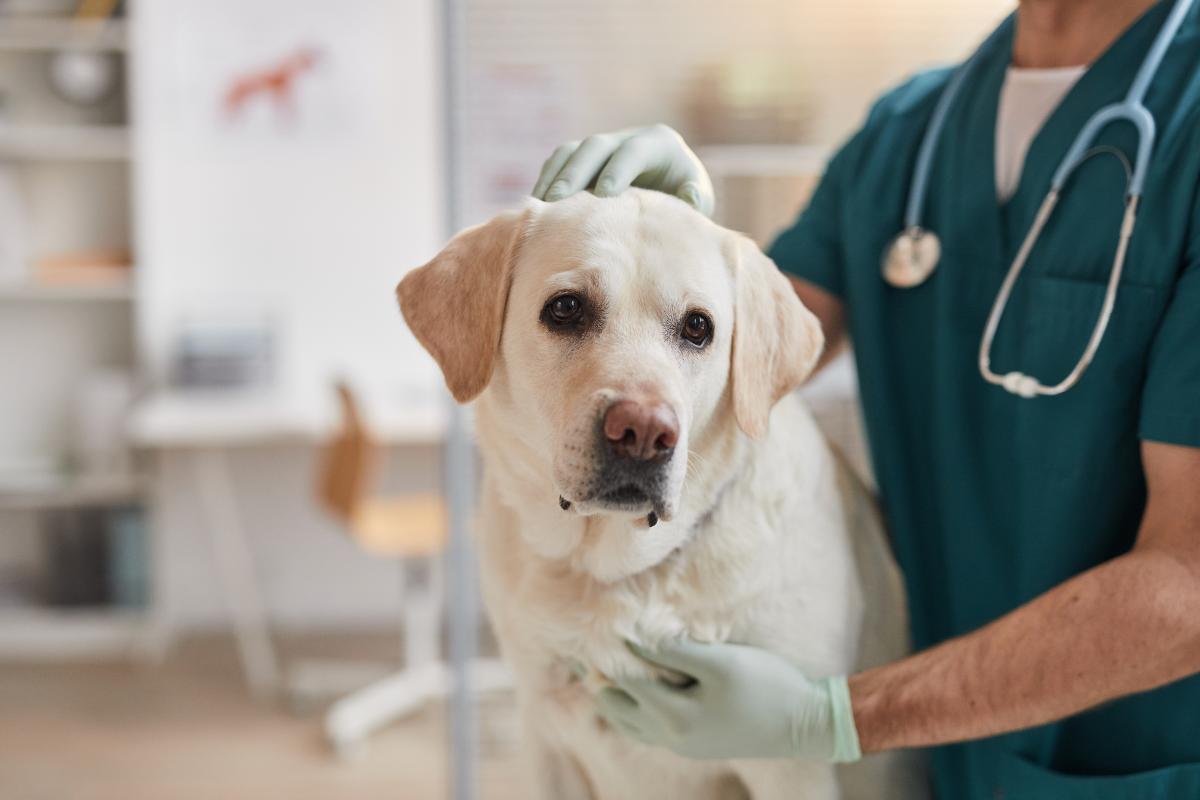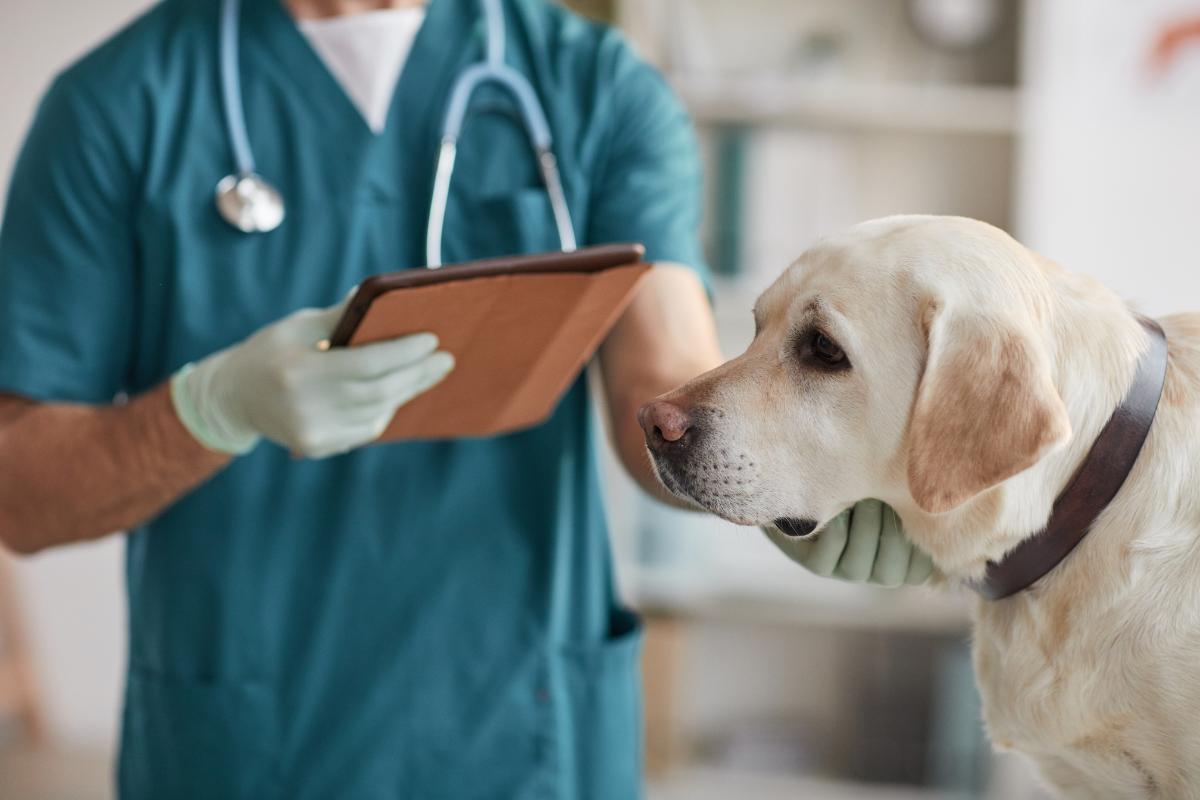Low Albumin Levels in Dogs



See files for Dogs
Albumin is a protein found in the blood of dogs and plays a fundamental role in the transport, maintenance and balance of fluids in the body. When albumin levels are altered, serious health problems can be triggered. A reading of canine low albumin levels can also be a symptom of a serious health condition in the dog. This is why monitoring and controlling albumin levels in dogs is so important, since alterations can be an indicator of severe liver, kidney or gastrointestinal diseases.
At AnimalWised, we look at the causes, symptoms and treatment of low albumin levels in dogs. We see the impact hypoalbuminemia can have on a dog's health and what we can do to prevent this problem in the future.
What does low albumin mean in dogs?
Also known as hypoalbuminemia, low albumin in dogs indicates that the levels of this protein in the blood are below the normal range. Albumin is produced in the liver and it is essential to monitor it as it acts in critical health functions such as the following:
- Transportation: it transports hormones, vitamins and other nutrients through the blood so that they reach the entire body.
- Fluid levels: it maintains the balance of fluids, helping to retain them in the blood vessels and preventing them from accumulating in other tissues.
- Blood pressure: maintains blood pressure to ensure proper circulation.
- Protection: it also has an antioxidant function that helps protect cells from damage that can be caused by free radicals.
- Amino acids: it plays a role in the reserve of amino acids that the dog can use in situations of need such as growth, stress or any disease.
A decrease in normal albumin levels in the dog interferes with all of these functions. It can cause everything from edema to fluid retention, poor blood circulation and/or nutritional deficiency. However, it is important to know that hypoalbuminemia does not happen on its own, but has an underlying cause, something we explore further in this article.

Symptoms of low albumin in dogs
Symptoms of hypoalbuminemia in dogs can vary depending on the underlying cause of the problem. The most common signs are:
- Fluid accumulation: swelling may occur because a decrease in albumin causes water retention in the tissues. It is common in the abdomen, legs, chest and face.
- Diarrhea and vomiting: this can occur if the cause associated with hypoalbuminemia is a gastrointestinal disorder.
- Weight loss and weakness: also results in fatigue and lethargy.
- Respiratory distress: if fluid builds up in the chest, the dog may have trouble breathing properly, so rapid and shallow breathing is common.
- Skin and coat problems: malabsorption of this problem can cause the dog's coat to look in poor condition, often being drier and lacking luster. Their skin can also be more susceptible to wounds and infections.
- Jaundice: this occurs when the cause is associated with liver problems. It is characterized by a yellowish coloration of the skin due to the accumulation of bilirubin in the blood. Learn more about canine jaundice with our article explaining why a dog's skin is yellow.
If you suspect that your dog has low albumin or you notice several of these signs of canine hypoalbuminemia, do not hesitate to go to the vet as soon as possible. Monitoring albumin requires a veterinary professional. They can diagnose the cause and prescribe the correct treatment.
We have already stated that low albumin can be related to liver function. Discover the different types of liver failure in dogs which can lead to hypoalbuminemia.
Causes of low albumin in dogs
Low albumin in dogs is often a symptom of an underlying disease, which usually affects the production, loss or absorption of proteins. Some of the main causes of low albumin in dogs include:
- Liver disease: the liver is the main organ responsible for producing albumin. When the liver is damaged due to diseases such as hepatitis, cirrhosis or liver failure, albumin production decreases.
- Gastrointestinal disorders: such as inflammatory bowel disease, enteropathy or certain types of cancer. These can cause your dog to lose albumin through the digestive tract. This is usually a result of damage to the intestinal lining which is responsible for helping proteins to filter out.
- Kidney disease: healthy kidneys retain protein in the body, but when this organ is affected, albumin production decreases.
- Malnutrition or malabsorption: a poor diet or problems affecting nutrient absorption can prevent the dog from getting the amino acids needed to produce albumin. Discover the causes and symptoms of intestinal malabsorption in dogs.
- Hemorrhages: significant blood loss can also reduce albumin levels, often as a result of trauma.
- Metabolic problems: conditions that affect protein use can also cause it to decrease.
- Infections and sepsis: the body's immune response may increase the breakdown of proteins or alter their production, something which also reduces protein levels in the body.
Each of these causes of hypoalbuminemia requires a specific diagnosis and treatment to stabilize and improve the dog's albumin. It is a symptom of a serious problem which can result in the death of the animal.

Diagnosis of low albumin in dogs
Diagnosing albumin deficiency in dogs may involve a series of tests and physical examinations performed by your veterinarian. This will best determine the cause of the protein deficiency and to treat it as soon as possible for a better prognosis:
- Physical exam: to evaluate signs of edema or any other abnormalities in the dog's body such as when a dog's paw's are swollen.
- Blood tests: measuring blood albumin levels and other parameters, such as liver enzymes, creatinine and urea. This can provide clues about the condition of the liver and kidneys. It also provides a better overall clinical picture by detecting infections or anemia that could be related to the cause of hypoalbuminemia.
- Urinalysis: to check for protein in the urine, which means the dog is losing protein, something common in kidney disease. Blood, glucose and pH levels can also be checked to rule out kidney and metabolic problems.
- Imaging tests: to see if the kidneys, liver or intestinal tract are inflamed, as well as monitor for tumors or fluid in the abdomen.
Discover other reasons for a distended abdomen in dogs.
Treatment for low albumin in dogs
The treatment to deal with low albumin in dogs will depend on the cause of this problem. While your veterinarian will determine the specific cause and subsequent treatment, you may expect the following in the most common cases:
- Liver disease: medications are often used to stimulate kidney function and protect kidney cells. An adapted diet for dogs with liver problems is also key in these cases.
- Kidney disease: in the case of protein loss through the kidneys, your veterinarian may recommend a low-protein but high-quality diet along with medications that protect and reduce blood pressure.
- Gastrointestinal disease: this may include anti-inflammatories, probiotics and, in some cases, a specific diet to facilitate protein absorption.
Adapting the dog's diet is very important in these cases. It will require high-quality proteins and a low amount of sodium diet to help reduce fluid retention. Specific supplements such as omega-3 fatty acids, vitamin E and other antioxidants to support liver and kidney health may be introduced.
In some more severe cases, intravenous administration of albumin is necessary to stabilize the dog. Diuretics, corticosteroids or immunosuppressants, antibiotics or antiparasitic drugs may also be used as part of the treatment.
When faced with this problem, avoid self-medicating your pet and always follow the advice of your trusted veterinarian. Act as soon as possible so as not to aggravate the problem. If left untreated, it is a condition which could pose a serious risk to the dog's health.

Foods rich in albumin for dogs
As you can see, it is essential to look after your pet's health. A diet adapted to their specific nutritional needs and requirements is essential to prevent all types of health problems, including hypoalbuminemia.
If you are wondering which foods are rich in albumin for dogs, we share a list of foods to helo prevent albuminemia and safeguard the overall health of the animal:
- Egg
- Meat (e.g. chicken, turkey and lean beef)
- Fish (e.g. salmon and sardines)
- Chicken, pork or beef liver
- Legumes (e.g. lentils and peas)
- Natural yogurt (low in fat and sugar-free)
Natural yogurt can act as a probiotic that can also help at the gastrointestinal level to absorb nutrients and aid optimal digestion. Learn more about what probiotics are good for dogs in our related guide.
This article is purely informative. AnimalWised does not have the authority to prescribe any veterinary treatment or create a diagnosis. We invite you to take your pet to the veterinarian if they are suffering from any condition or pain.
If you want to read similar articles to Low Albumin Levels in Dogs, we recommend you visit our Other health problems category.








